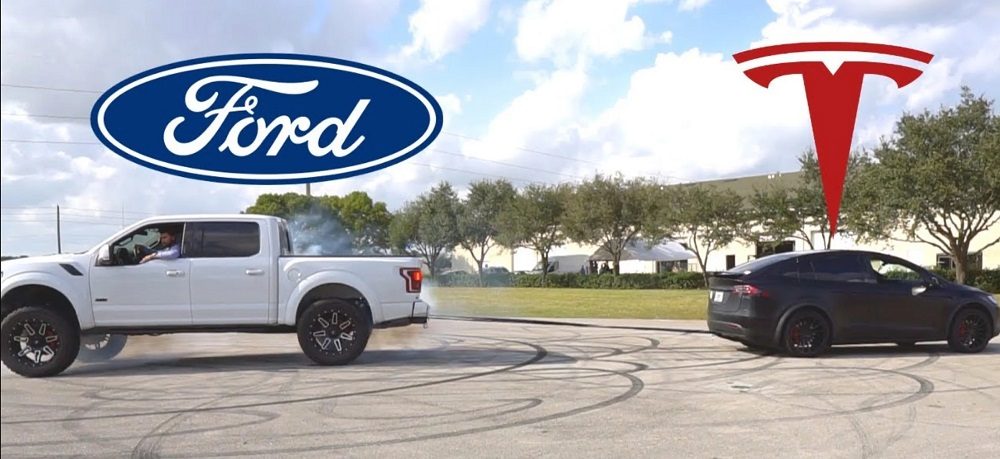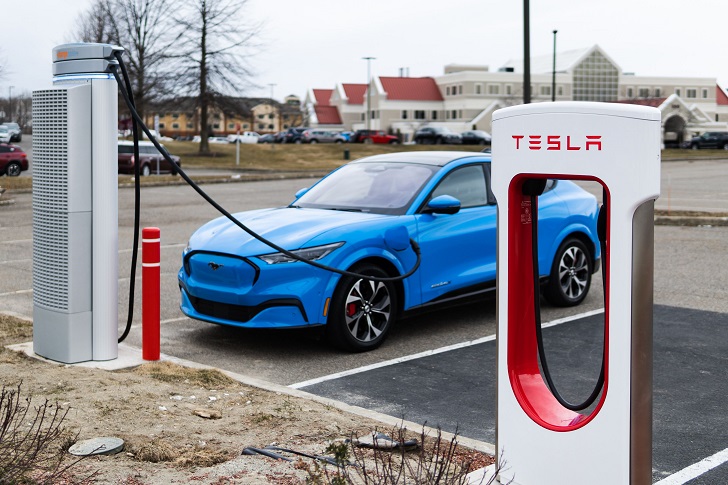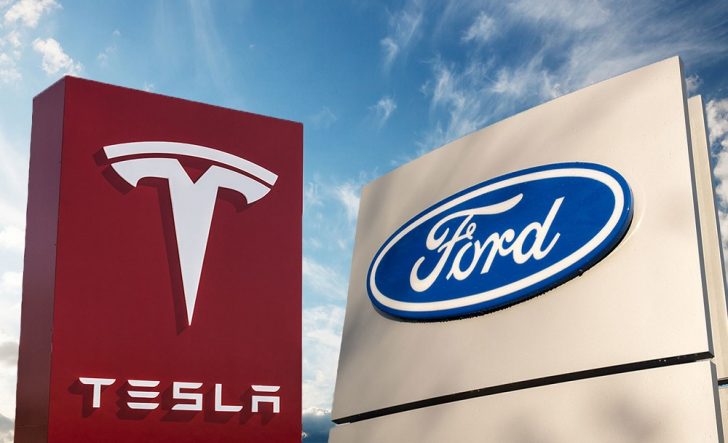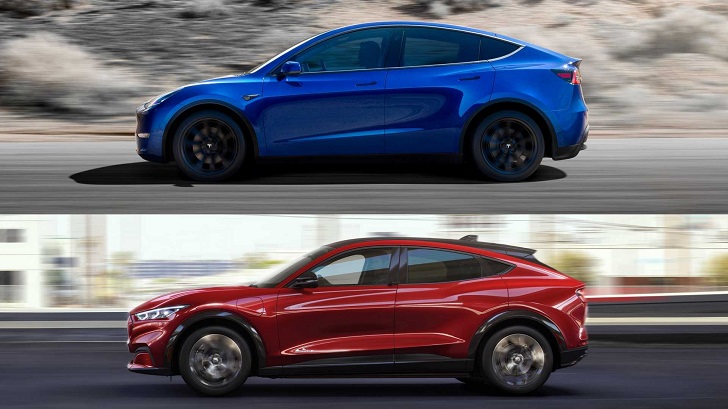
Ford & Tesla: Key Differences Between Two Automotive Titans

Ford and Tesla are two prominent names in the automobile industry, each with a unique approach to designing and manufacturing cars. While both companies produce electric vehicles, several key differences between them set them apart, such as:
Electric Vehicle Technology
Ford and Tesla produce electric vehicles, but their approach to EV technology differs. Ford’s electric vehicles are designed with a focus on affordability and accessibility. They offer a range of electric vehicles at various price points, from the affordable Mustang Mach-E to the luxurious Lincoln Aviator Grand Touring.

MACK HOGAN/ SHUTTERSTOCK | Ford is investing more than $50 billion in electric vehicles globally
On the other hand, Tesla has a more premium approach to electric vehicles. Their cars are designed to be high-performance and high-tech, with features like self-driving capabilities and a sleek, futuristic design. The Tesla Model S and Model X are some of the most popular electric vehicles on the market and have set the standard for luxury electric cars.
Manufacturing Process
Ford is a traditional automaker that relies on a mass-production model to produce its vehicles. They have large manufacturing facilities that produce thousands of cars daily and use a network of suppliers to source their parts.
Tesla, on the other hand, has a more vertically integrated manufacturing process. They have their own factories where they produce their vehicles from start to finish, including the production of batteries. This allows them to have more control over the manufacturing process and to innovate more quickly.
Brand Identity
Ford and Tesla also have very different brand identities. Ford is a more traditional, conservative brand that is focused on reliability and practicality. They have a loyal customer base that values their history and reputation for producing dependable vehicles.
Tesla, on the other hand, is a more progressive and innovative brand. They are focused on disrupting the industry and pushing the boundaries of what is possible with electric vehicle technology. They have a loyal following of tech-savvy customers who are drawn to their high-tech features and futuristic design.

Mark Tulay/ Pixabay | In 2022, the Ford Motor Company sold about 4.2 million vehicles to dealers and distributors worldwide
Market Share
Ford is a well-established brand with a global presence, and they have been a dominant player in the automotive industry for decades. In 2020, Ford sold over 4.2 million vehicles worldwide, making them one of the largest automakers in the world.
On the other hand, Tesla is a much smaller company in terms of market share. In 2020, they sold just over 500,000 vehicles worldwide. However, Tesla has grown rapidly in recent years, with their market share increasing yearly. As demand for electric vehicles grows, Tesla is well-positioned to capture a larger market share.
Corporate Culture
Ford is a more traditional company with a hierarchical structure focusing on stability and consistency. They have a long-standing “Fordism” culture emphasizing efficiency, standardization, and specialization.
Tesla, on the other hand, has a more innovative and dynamic corporate culture. They are known for their fast-paced and high-pressure work environment, focusing on constant innovation and disruption. CEO Elon Musk is known for his unconventional approach to management, and his leadership style has been a significant factor in Tesla’s success.

EVANNEX/ Insideevs | One of the key features of an electric car is its acceleration, and Tesla is no exception
Financial Performance
Finally, the financial performance of Ford and Tesla differs significantly. Ford is a publicly traded company with a market capitalization of around $60 billion as of May 2023. They have a long-standing history of profitability, but their financial performance has been somewhat inconsistent in recent years.
On the other hand, Tesla is a high-growth company with a market capitalization of around $1 trillion as of May 2023. They have experienced rapid revenue growth in recent years and have consistently beaten analyst expectations. However, they have yet to turn a profit consistently, and some analysts are skeptical of their high valuation.
More in Business
-
`
What Chiropractic Services or Products Are Taxable in the U.S.?
When considering sales taxes that come with chiropractors charge, it is important to understand that the rules vary widely by state....
September 13, 2024 -
`
How to Prevent Squatters While on Vacation?
Going on vacation should be a time of relaxation and adventure, not a cause for concern about what is happening back...
September 6, 2024 -
`
Ben Affleck and JLO Divorce – Why He Won’t Remove His Ring?
Given their status as Hollywood’s power couple, Ben Affleck and Jennifer Lopez’s relationship status continues to captivate public interest. Recent reports reveal...
August 26, 2024 -
`
Why Is My Gas Bill So High in the Winter? Top Reasons You Need to Know
Why is my gas bill so high in the winter? High gas bills arise when the temperature drops, and households begin...
August 23, 2024 -
`
How to Start a Taxi Business With One Car – And Be Profitable
The online taxi booking app industry is a goldmine in today’s market. It offers unmatched convenience for commuters, lucrative opportunities for...
August 16, 2024 -
`
Can You Go to Jail for Driving Without a License? Find Out Now
Driving is an essential part of daily life for many people, but it comes with responsibilities. One of the most fundamental...
August 9, 2024 -
`
Top 5 Richest “American Idol” Winners
“American Idol” has been a launching pad for many aspiring singers since its debut in 2002. The show has produced some...
July 29, 2024 -
`
Can Banks Notarize Documents for Free?
Navigating the landscape of legal documents can often lead you to one crucial service: notarization. Understanding whether you can access these...
July 23, 2024 -
`
5 Tried & Trusted Ways to Get Quality Property Clients
Wondering how to get property management clients? In today’s competitive market, securing high-quality property management clients can be a challenge. But...
July 17, 2024















You must be logged in to post a comment Login